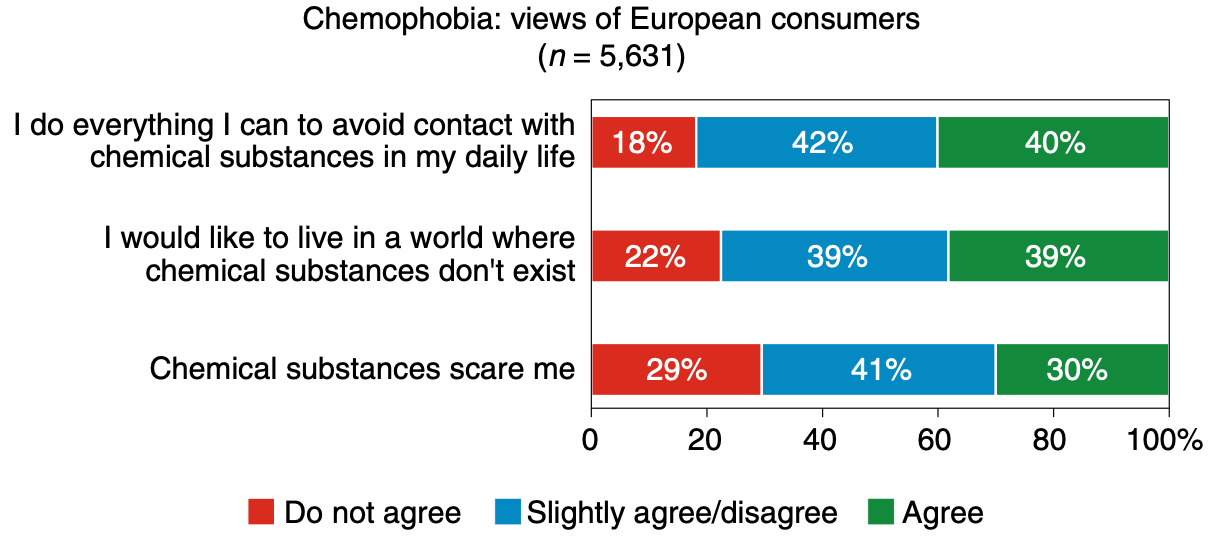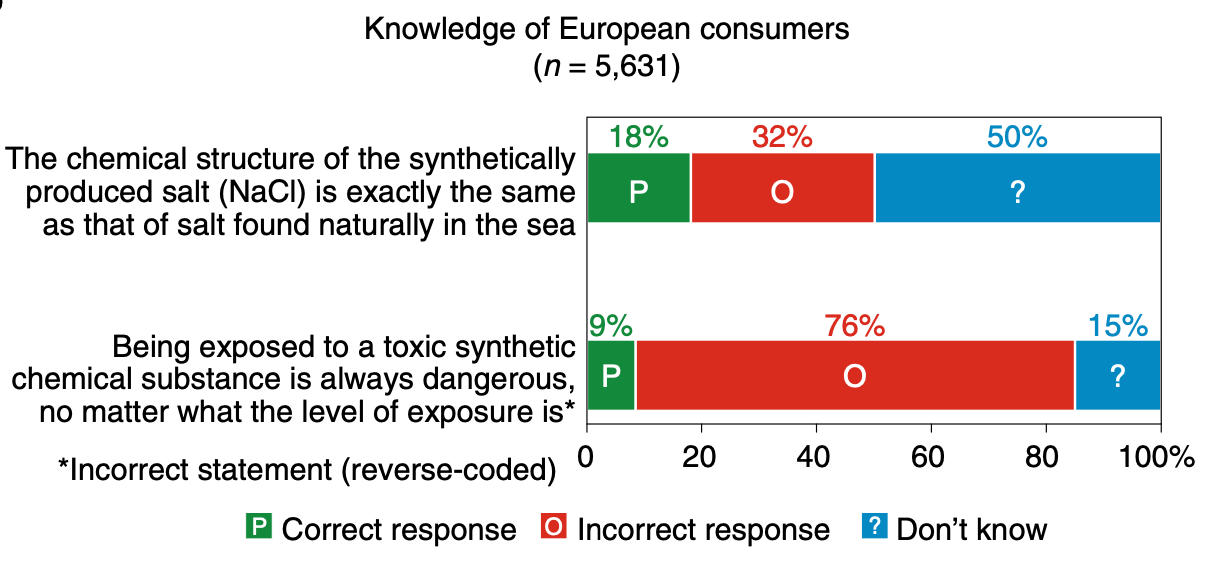It's not a secret that the average person is scientifically illiterate. The question is, "Just how scientifically illiterate?" The answer is appalling.
Researchers Michael Siegrist and Angela Bearth report in the journal Nature Chemistry on a survey they conducted to gauge Europeans' attitudes toward chemicals. They had about 700 respondents from each of eight countries: Austria, France, Germany, Italy, Poland, Sweden, Switzerland and United Kingdom, for a total of 5,631 participants.
The first series of questions was designed to measure chemophobia, the irrational fear of chemicals. As shown below, 30% of Europeans report being "scared" of chemicals, and about 40% try to "avoid contact with chemical substances" and want to "live in a world where chemical substances don't exist." Obviously, this is impossible. Everything -- water, food, your smartphone -- is a chemical or a combination of chemicals.

The second series of questions was designed to assess basic chemistry and toxicology knowledge. The results were far worse: 82% of respondents didn't know that table salt is table salt, whether it is extracted from the ocean or made synthetically. Another 91% didn't know that "the dose makes the poison" is true, even for synthetic chemicals.

How can people be so uneducated in a society that has access to all knowledge ever produced by humanity? The authors offer a quite plausible explanation.
They note that the public is far removed from the processes required to produce the materials that we use on a daily basis. People simply don't understand how food safely arrives on their plate or a smartphone lands in their pocket. Because of this, people rely on mental shortcuts (simple heuristics) to make decisions. The decisions are usually wrong because the heuristics are logical fallacies.
For instance, the authors cite the common "natural is better" fallacy, in which people erroneously conclude that things found in nature are safer than synthetic versions. Another is the "contagion" heuristic, in which it is believed that even the tiniest amount of a toxic substance is harmful and "contaminates" everything with which it comes into contact. Under this strange light, a single molecule of a toxin is just as dangerous as a metric ton.
Yet another is the "trust" heuristic, which is essentially a fallacious appeal to authority. People trust others who share their values, not experts. So, if a popular celebrity says that you should put coffee in your butt, by golly, some people are going to do it.
My only gripe with the paper is that the authors seem to back away from the most obvious conclusion:
"It is not our intention to propagate a naïve deficit model postulating that a lack of knowledge is the only reason for negative perceptions of synthetic chemicals."
Why not? That's the correct answer.
Source: Michael Siegrist & Angela Bearth. "Chemophobia in Europe and reasons for biased risk perceptions." Nature Chemistry 11: 1071-72. Published: 07-November-2019.




